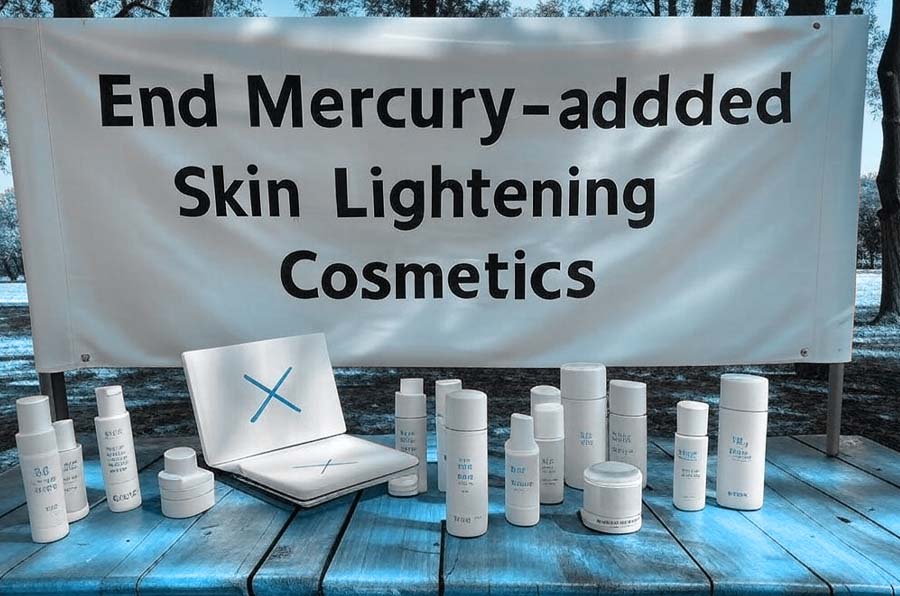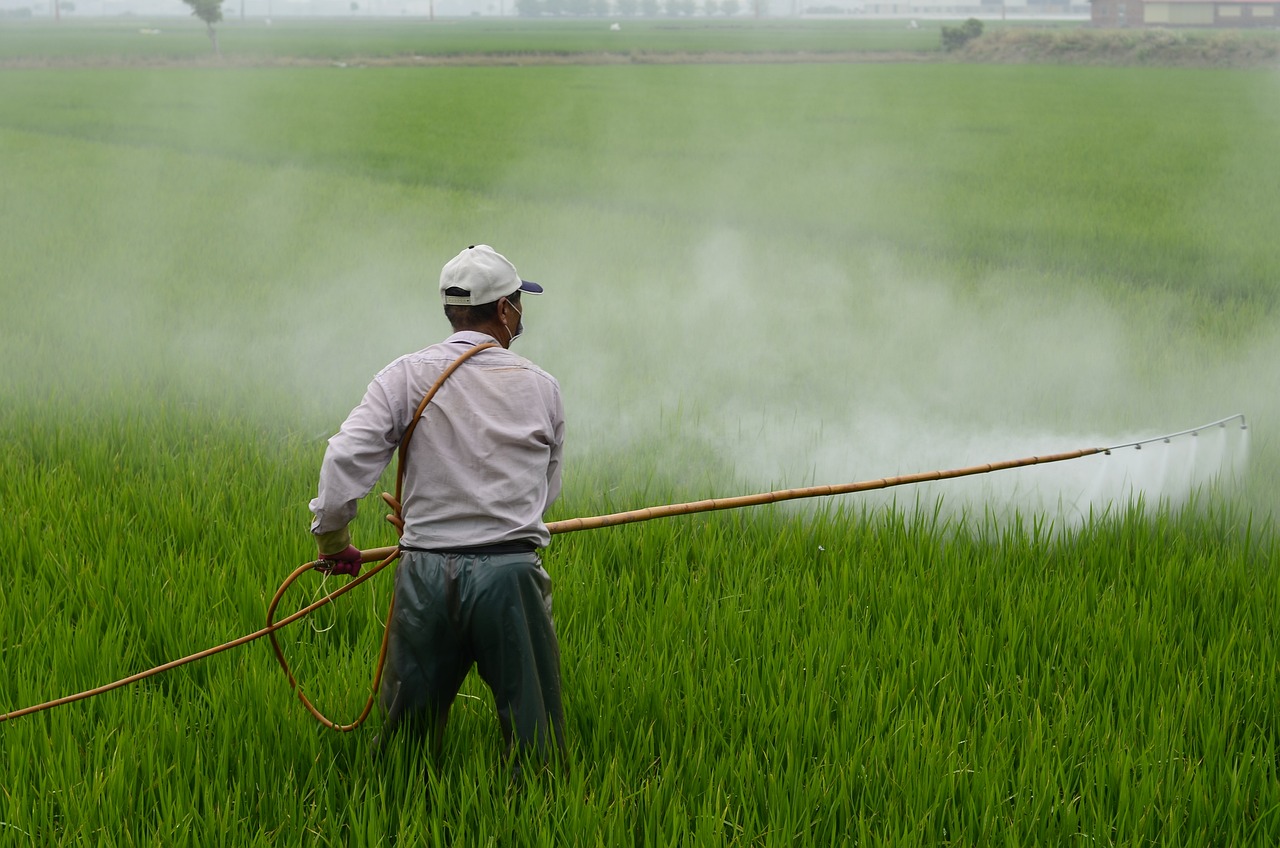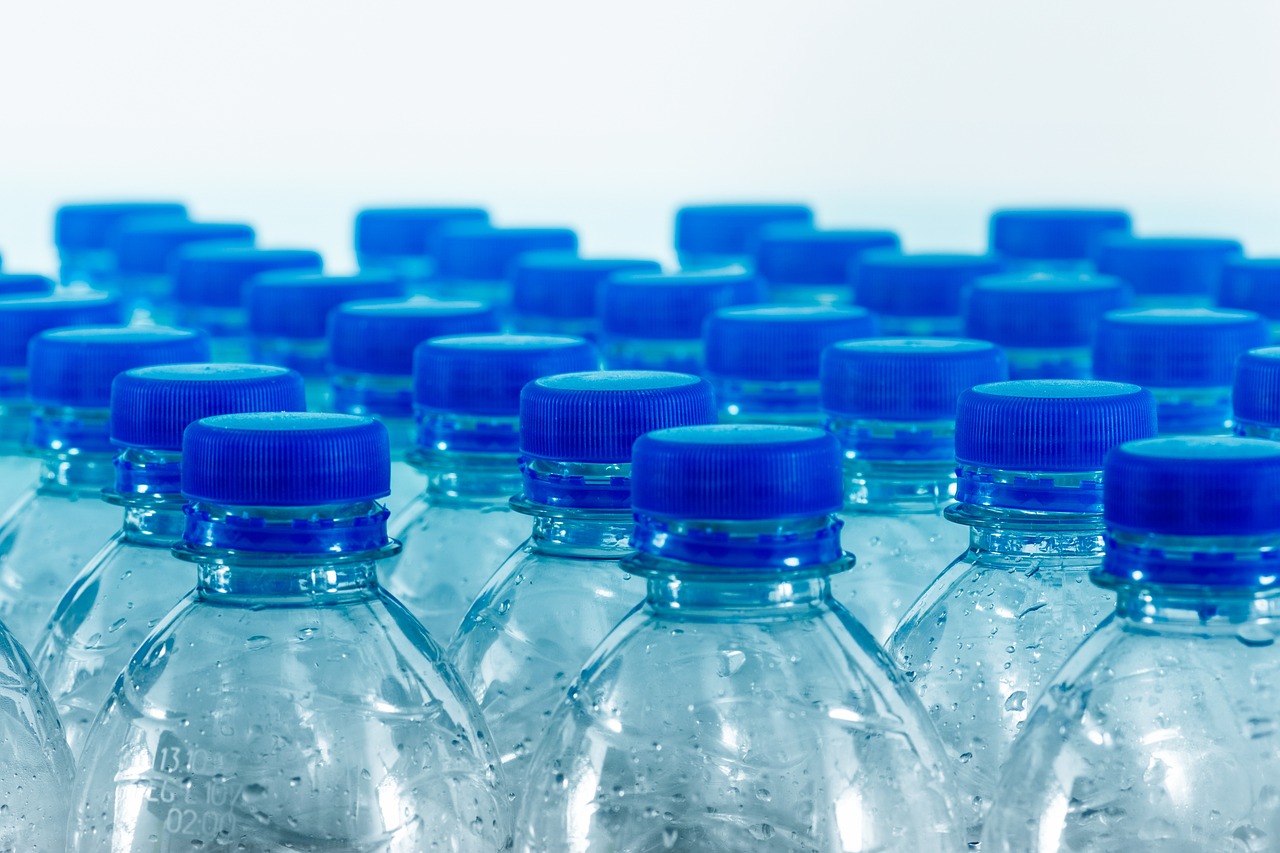Libreville, Gabon—On Wednesday 22nd January 2025, Ministers adopted a declaration calling for the elimination of mercury-added skin lightening products. Non-government organizations from Africa and across the globe applauded the Ministers high level call to zero out mercury in skin whitening products.
ZMWG testing indicates that hundreds if not thousands of them are available in the global market. Products tested in a variety of countries in Africa, Asia and Latin America, Europe and North America have contained from less than 1 to 57,000 parts per million (ppm) mercury.
“We applaud the declaration by the African ministers for health and environment in Gabon to end the marketing and sale of these harmful products in Africa. The declaration will support our efforts to end the illegal sale of mercury skin lighteners in Kenya, especially via online platforms.” Said Griffins Ochieng, Executive Director Centre for Environment Justice and Development (CEJAD), Kenya.
Mercury is a persistent neurotoxin that can cause severe adverse health effects via absorption through the skin, inhalation or orally. Due to its ability to vaporize, mercury in cosmetics poses a risk not only to the consumer but also to others in the home. Infants, children, and the developing fetus are particularly vulnerable to the neurodevelopmental effects of mercury. Long-term exposure may damage the eyes, lungs, kidneys, digestive, immune and nervous systems.
“The upcoming Minamata Convention Sixth Conference of the Parties scheduled for later this year should endorse this forward-looking initiative and adopt a programme of work to tackle mercury-added cosmetics and #MakeMercuryHistory,” said Elena Lymberidi-Settimo from the European Environmental Bureau and ZMWG International Co-ordinator
Mercury is added to SLPs because it lightens the skin by suppressing the production of melanin.
Skin-lighteners are sold as creams, lotions and soaps.
We call on the government through KEBS to sensitize and create public awareness on the dangers of these harmful products.
Articles | press_release
NGOs Support Libreville Declaration to End Mercury-added Skin Lightening Cosmetics
Libreville, Gabon—On Wednesday 22nd January 2025, Ministers adopted a declaration calling for the elimination of mercury-added skin-lightening products. Non-government organizations from Africa and across the globe applauded the Ministers' high level call to zero out mercury in skin whitening products.

More programs

Our work under the Mercury Elimination Program aims to protect human health and the environment from anthropogenic emissions and releases of mercury and mercury compounds, in line with the Minamata Convention on Mercury, a legally binding global treaty adopted in 2013. Kenya is a party to the Minamata Convention.

Under this program, CEJAD aims to eliminate the risk posed by exposure to lead in paints to women and children, and improve the regulatory frameworks to phase out lead in paint at national, regional and international level.

Our work under this program aims to promote the phase out of Highly Hazardous Pesticides (HHPs) from use, especially in agriculture to protect human health and the environment. The use of HHPs is threatening the lives of vulnerable populations, food systems, biodiversity and the environment at large.

The Montreal Protocol, adopted in 1987, protects the ozone layer by regulating ozone-depleting substances (ODS), such as chlorofluorocarbons (CFCs) and hydrochlorofluorocarbons (HCFCs). It mandates the phase-out of CFC and HCFC production and consumption with specific timeframes for different Parties, based on their status as a developed or developing country.

Our work under this program aims to reduce the health and environmental impacts associated with waste and plastics throughout their life cycle. Over the years, plastic and plastic products have emerged as problematic and hazardous to human health and the environment.

